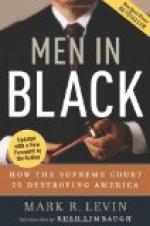“The jury is yours,” says the judge, as though he were abandoning the jury. Indeed the summing up is an attack, a vivid, keen, masterly struggle in which wit and brain is pitted against wit and brain: where facts and passions are to be marshalled in the most intelligent and plausible way, where imagination and oratory are to be employed in their finest capacities. It may be bold, manly, energetic, or soft and persuasive; it may appeal to sympathy or threaten with a battery of accumulated facts. Forensic oratory is the highest type of art, the most powerful of human gifts. The only trouble with most court oratory is that it is only fit for the market-place. The lawyer begins with the firm impression that he must win the jury. His voice is bland and soothing, he feels that he must be soft and persuasive. He rubs his hands and remembering the old adage, that laugh and the world laughs with you, attempts a little joke. There is nothing so good as to get a smile for his side. Perhaps the joke does not go very well and the laugh does not come; the point has missed. He will try what flattery can do.
“Men of your intelligence can readily see,” he says.
“When I was examining you,” he explains in a subtle way. “I knew at once how unprejudiced and fair-minded you were.”
“You gentlemen are practical men and can understand.” Yet somehow the jury are impervious. They sit back in their chairs and stare.
Then the lawyer begins to forget the object of ingratiating himself. Hypnotized by the memory of his client’s wrongs, he works himself into a frenzy of feeling. He swings his arms, pounds with his fist, raises his voice, and thunders his denunciation. His speech takes on a threatening tone. He shouts and bawls; the jury must be waked up. They sit stolid and unmoved. He tries to catch their eye, there is no gleam of interest. Perhaps he has rather a hopeless feeling that the art of oratory is not what it is reputed to be. The jury look particularly unresponsive. Even that one little juror, with the clever, smart face, who is leaning forward with such an expression of enjoyment may not be altogether trustworthy. The lawyer has seen that kind before and the one juror who seemed the most interested in the last case he argued was the very one who held out against him in the jury-room as he found afterwards. It seems a difficult matter to stir the jury and the men in the box are not at all a warm or enthusiastic audience.
The jury are not particularly keen about the oratory of the lawyer, they look upon him as paid to do his part. It is the portion of the trial they can understand; they have not clearly comprehended what went before. When the objections were being made and there were the cross-examination and badgering of witnesses, they could not separate in their minds the functions of the lawyer and the personality of the lawyer. It seemed as though he were doing a good many unfair things and not acting quite up to the mark, but now the atmosphere has cleared. They can realize that he is only the paid talker for his client, that he is only making all this noise because that is his business. To the jury he is the pleader employed as an actor. The position is simple; if any one would pay them for acting and gesticulating at so much per day or per hour, they would be very glad to earn the money.




